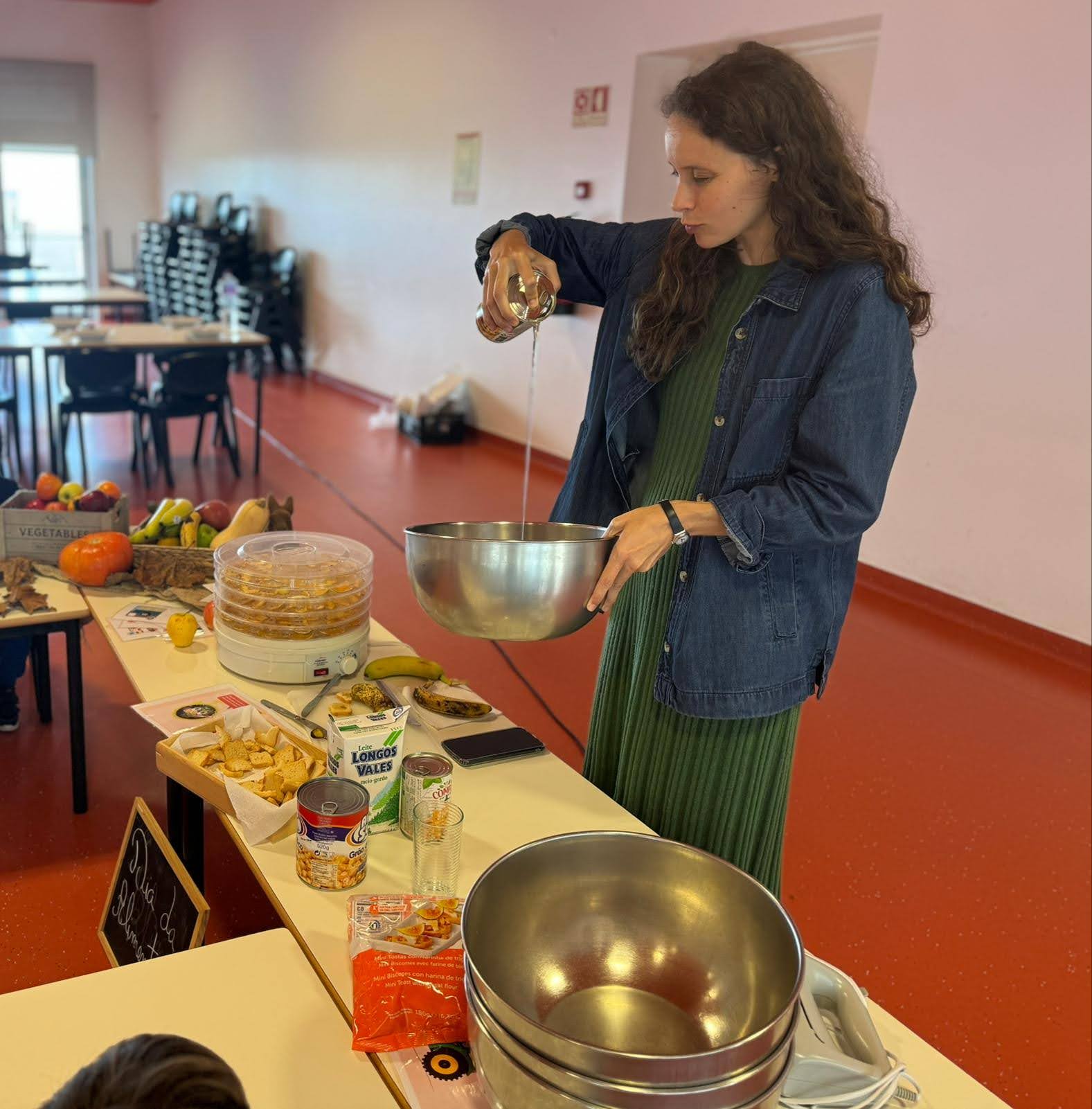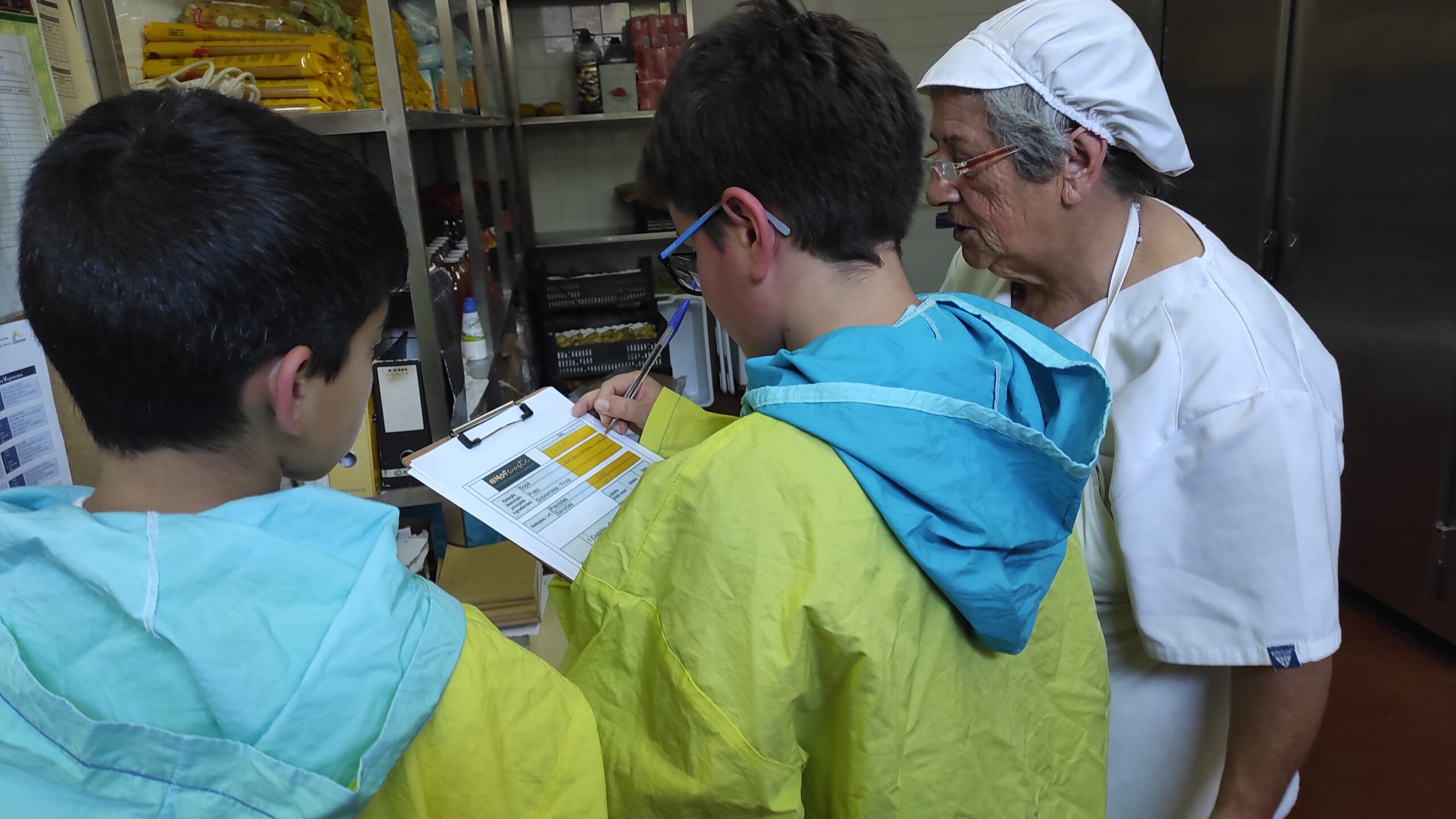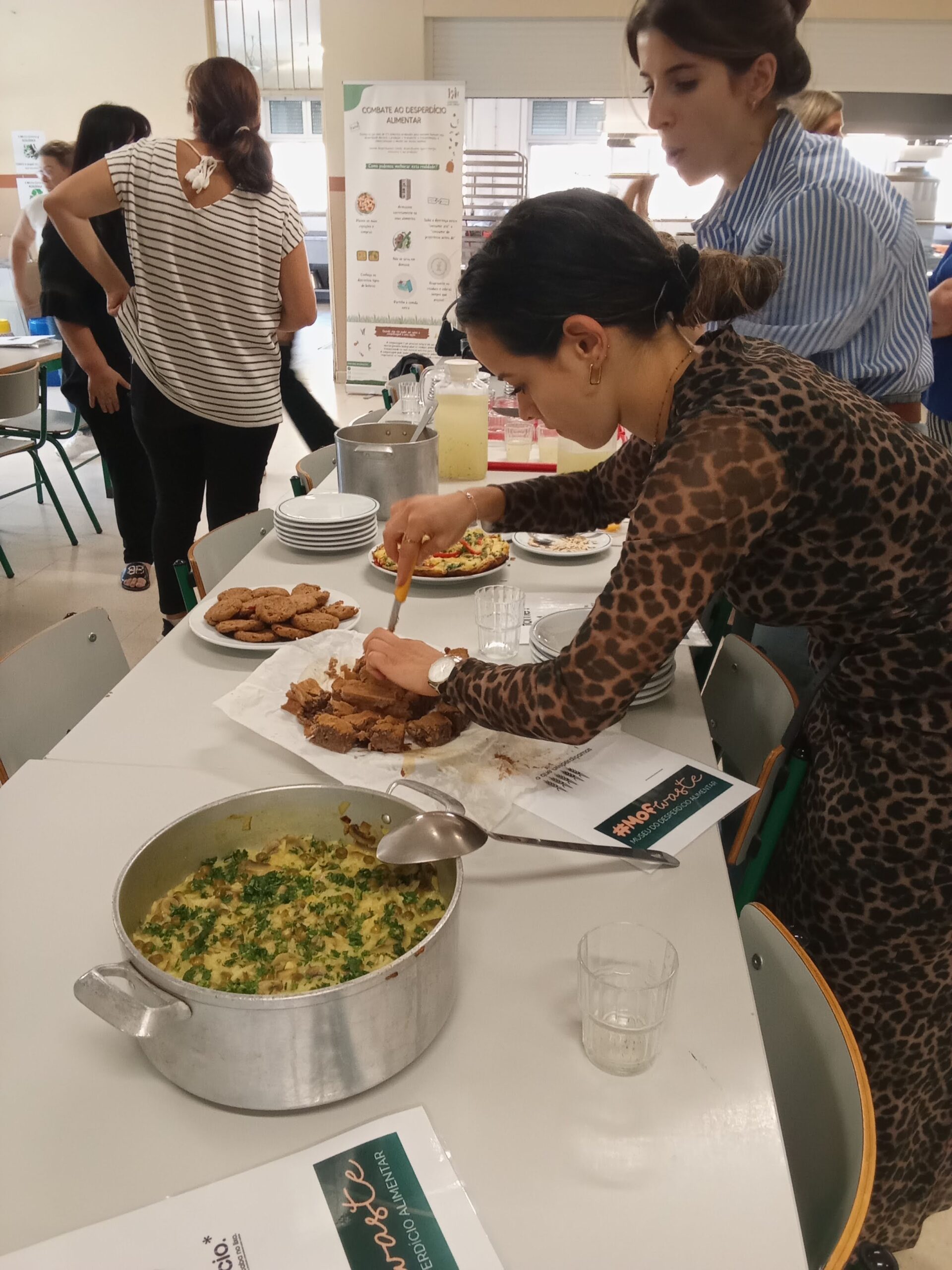Project Description:
The Museum of Food Waste aims to engage students in actively monitoring various forms of food waste in school canteens in the Neiva river mouth in Portugal, along with co-creating recommendations for interventions that can tackle this issue. The project is a continuation of a previous project with the same name, which included food waste monitoring in school canteens but not through a citizen science approach, this time focusing/expanding on structuring processes, citizen science data collection, adding co-creation of food waste reduction strategies, and enlarging to 3 school canteens (instead, and with an increased duration (instead of 1 month).
Project Type: Kickstarting Grant
Theme: Sustainable Lifestyles, Food
Mentor: Alexandra Albert
MOFWaste – The Museum of Food Waste: Tackling Food Waste through Awareness and Action
MOFWaste – The Museum of Food Waste is a groundbreaking project committed to tackling one of the most pressing challenges of our time: food waste. By framing the initiative as a museum, we emphasise our mission to relegate food waste to history. However, MOFWaste’s vision extends far beyond raising awareness—it empowers students to become active leaders in combating this critical issue and driving sustainable change.
Through the project, we have engaged students, teachers, and canteen staff across six schools in the municipalities of Esposende and Viana do Castelo, Portugal, in a collective effort to reduce food waste. Central to this initiative was a 40-day data collection process, during which food waste was systematically weighed and analysed to identify patterns and categories of waste. This process was complemented by interactive workshops where participants collaboratively developed practical and sustainable solutions to prevent waste.

The initiative represents the first-ever collection of quantitative data on food waste in school canteens within these municipalities. This data is crucial for informing and improving local public policies aimed at food waste reduction. Beyond its policy implications, MOFWaste has been instrumental in fostering behavioural and cultural changes, reframing how food waste is perceived and managed while equipping students to take on active roles as environmental problem-solvers.

The project also integrated food waste awareness into nine school subjects, creating opportunities for interdisciplinary reflection. For instance, students explored data analysis in mathematics, developed podcast programmes in citizenship classes, and designed creative food waste installations in the arts. This integration was made possible through an in-depth analysis of the school curriculum, which identified ways to incorporate food waste awareness into major academic projects. By bridging the gap between schools and science, MOFWaste has demonstrated the transformative potential of citizen science in deepening our understanding of food waste.
The support of the IMPETUS Accelerator Programme has been pivotal in expanding the project’s scope, enhancing its citizen science framework, and refining its communication and advocacy strategies. As a result, MOFWaste has been able to engage a broader audience and strengthen partnerships committed to the cause.
To date, more than 300 students, teachers, and canteen staff have participated in MOFWaste, leaving a lasting impact on how food waste is understood and addressed in schools. The final monitoring results, which revealed over six tonnes of food waste, have sparked critical reflection—both collectively and individually—about our habits and the urgent need for action.
MOFWaste has also developed replicable resources, including a comprehensive toolkit, to extend its impact beyond the initial participating schools. These resources serve as a model for other institutions, enabling them to implement similar initiatives and further amplify awareness of food waste in meaningful ways. While the project will continue in the schools where it was first introduced, its ripple effects have already inspired others to adopt and adapt its strategies.

Through MOFWaste, we are fostering a culture of sustainability and shared responsibility that we hope will reach far beyond the school gates and into broader communities. Together, we can consign food waste to the past and build a more sustainable future.



